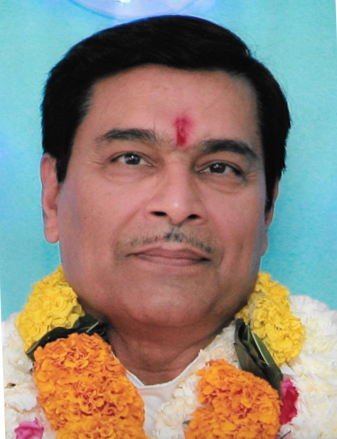From a satsang with Pt. Balram Persad, Spiritual Leader, Om Shakti Mandali
Hanuman Jayanti is celebrated twice a year, first in the month of Chaitra (April-May) on the purnima (full moon), when He received his many powers through the blessings of all 33,000 Devtas, and then in Kaartik (October-November) for his birth manifestation in this world.
Throughout the Ramayan, Hanumanji displays his awesome powers as He seeks to fulfill the divine purpose of Shree Raam. He was blessed by Agin Devta with the gift of not being harmed by fire. As such, when, as an emissary of Shree Raam, he was captured by Ravan in Lanka and his tail was set on fire, he remained unhurt by the flames.
He was gifted with ashtha siddhi (the eight powers), which He can also bestow on his devotees:
- Animaa: Ability to reduce one’s size
- Mahima: Ability to increase one’s size
- Garima: Ability to increase one’s weight infinitely
- Laghima: Ability to become lighter than the lightest
- Praapti: Ability to obtain anything
- Praakaamya: Ability to acquire anything desired
- Isitva: Lordship over creation
- Vasitva: Having control over things
When Hanumanji, together with Shree Raam’s enormous search party for Sita Maa arrived at the shores of the vast ocean, they were unable to advance any further towards the island of Lanka. Jamvant, who knew of Hanumanji’s powers, urged Hanuman to awaken them as the Lord needed Him. Shree Hanuman’s body vibrated and through His power of mahima, his body increased in gigantic proportions until he was able to leap over the ocean to Lanka to carry Shree Raam’s ring to Sita Maa. Hanumanji reminds us to ask ourselves as devotees whether we have reached our true potential. Do we know what we are capable of? Do we remember that we came into this world as human beings to achieve our highest goal?
On a deeper level of meaning, Hanumanji represents the mind principle. He is the restrained, one-pointed, highly disciplined mind that we must achieve. Related to the mind is the principle of breathing, which, when controlled, can lead us to that highest state of the mind. Yogis practise inhalation, retention, and exhalation of the breath in order to still the body and mind. Hanumanji is also called Vayu putra, the son of Vayu, the wind. He is Vayu tattwa, the principle of air. The nature of air is that it is present everywhere, unseen, but essential for life. Just as the air is necessary for living, so is the grace and blessing of Hanumanji. He also represents the concept of Vayubhakshan, the ability to live on air alone: In the Ramayan, Shree Raam and Lakshmanji were taught the bala (strength) and atibala (super strength) mantras which enabled them to not eat or drink while retaining their vigour and strength. Similarly, when the Divine Mother, in the form of Sati, wished to marry Shivaji, she performed intense tapasya on the Himalaya mountain, where she eventually subsisted only on air.
In Hinduism, we consider the physical, subtle and causal bodies in each individual. Shree Hanuman represents the subtle body, which consists of various subtle sheaths: praanamaya kosha or vital energy sheath; manomaya kosha or mental sheath; and the vigyaanamaya kosha or wisdom sheath. Hanumanji is called Praan Devta, Praan Nath and Praan Vayu. Praan is the vital life force that enables the body and mind to function. There are five functions of praan, the Praana Vayus or vital airs that govern various bodily activities:
- Praana: the inhalation of air and forward propulsion
- Apaana: elimination and cleansing of the body
- Udaana: growth; sounds: speech expression
- Samaana: absorption, cell metabolism and digestion
- Vyaana: circulation within the body
From a physiological perspective, breathing, the Hanuman principle, can assist us in achieving a condition called coherence. Coherence leads to improved mental clarity, focus, emotional stability and decision making. How we breathe affects what we think, which affects what we say, what we do and what we become. Deep breathing also allows us to overcome negative qualities and emotions. By worshipping Hanuman Baba and chanting the Hanuman Chalisa, we can achieve such a state as well as the ultimate goal of life, realising our divinity.



